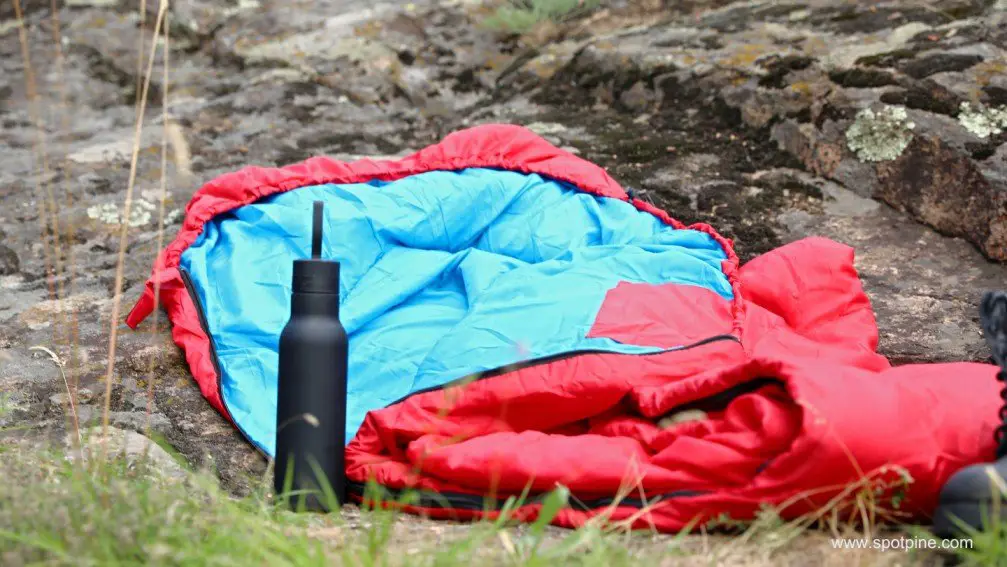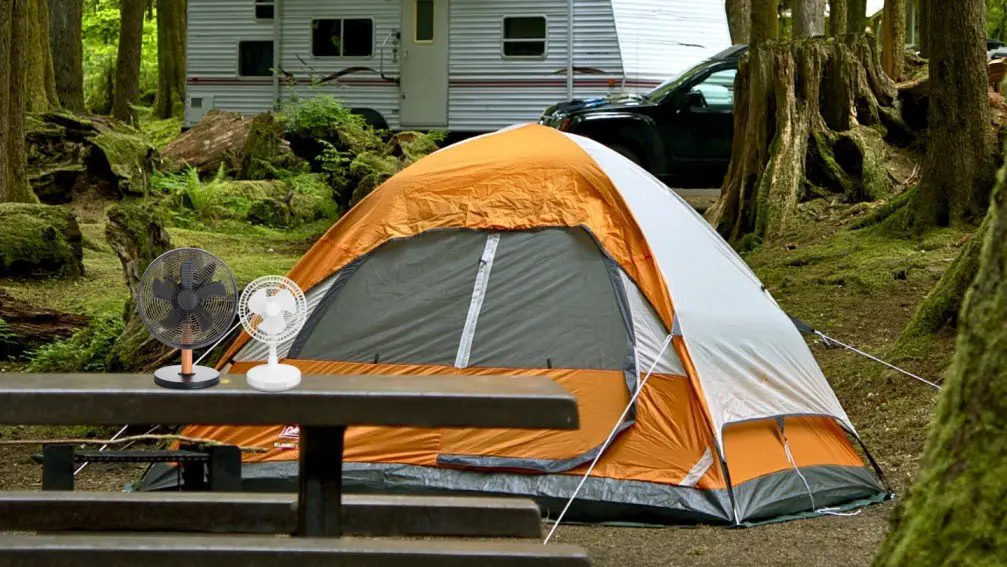Essential camping items include a tent, sleeping bag, and first-aid kit. These basics ensure safety and comfort outdoors.
Camping offers a break from daily routines and reconnects you with nature. Preparation is key to a successful trip. Essential items like a reliable tent, sleeping bag, and first-aid kit form the foundation of your gear. Include a portable stove, water filter, and flashlight for convenience.
Proper clothing, sturdy footwear, and a multi-tool add to your comfort and safety. Plan your meals and pack non-perishable foods. Don’t forget maps or a GPS device for navigation. Having these essentials ensures an enjoyable and stress-free camping experience. Prioritize these items to make your adventure memorable and safe.
Credit: www.overlandmama.com
Choosing The Right Tent
Choosing the right tent is crucial for a successful camping trip. The right tent ensures comfort, safety, and protection from the elements. This section will guide you through the essential factors to consider when selecting the perfect tent for your adventures.
Tent Size
Picking the right tent size depends on how many people will use it. Tents come in various sizes, from single-person to family-sized tents. Consider the following points:
-
Number of campers: Choose a tent that can comfortably accommodate all campers.
-
Gear storage: Ensure there’s enough space for gear inside or in vestibules.
-
Space for movement: Opt for a tent with extra room if you prefer more space to move around.
Weather Suitability
Weather conditions can greatly affect your camping experience. Ensure your tent is suitable for the expected weather. Key factors to consider include:
-
Seasonality:
-
3-season tents: Suitable for spring, summer, and fall. These tents offer good ventilation and protection from rain.
-
4-season tents: Designed for winter camping. They provide extra warmth and withstand heavy snow and strong winds.
-
-
Waterproofing: Look for tents with a high waterproof rating. Check for seam sealing and a durable rainfly.
-
Ventilation: Ensure your tent has adequate ventilation to prevent condensation. Look for mesh panels and windows.
Sleeping Gear
When camping, having the right sleeping gear ensures a restful night. The right items provide comfort and warmth, making your trip enjoyable. Below, we explore the essential sleeping gear you need.
Sleeping Bags
Choosing the right sleeping bag is crucial. It keeps you warm and comfortable. Here are some key features to consider:
-
Temperature Rating: Ensure the bag suits the weather.
-
Insulation Type: Down or synthetic, each has pros and cons.
-
Shape: Mummy, rectangular, or double, pick what fits your needs.
Check the temperature rating before buying. A bag rated for colder weather will keep you warm. Insulation type affects weight and warmth. Down is lighter but costly. Synthetic is heavier but cheaper. Bag shape affects comfort and space. Mummy bags are snug and warm. Rectangular bags offer more room to move.
Sleeping Pads
Sleeping on the ground can be uncomfortable. A sleeping pad provides cushioning and insulation. Here are the main types:
|
Type |
Pros |
Cons |
|---|---|---|
|
Foam Pads |
Light, cheap, durable |
Bulky, less comfortable |
|
Inflatable Pads |
Compact, adjustable comfort |
Expensive, can puncture |
|
Self-Inflating Pads |
Easy to use, good insulation |
Heavy, costly |
Foam pads are light and budget-friendly but can be bulky. Inflatable pads offer great comfort and pack small. They need to be inflated and can puncture. Self-inflating pads balance comfort and ease. They are heavier and more expensive.
Investing in a good sleeping pad makes a huge difference. It ensures a good night’s sleep, keeping you energized for the next day.
Cooking Equipment
Camping is an exciting outdoor adventure. To make it enjoyable, you need the right cooking equipment. This ensures you have delicious meals even in the wild. Let’s explore the essential items.
Portable Stove
A portable stove is a must-have for any camping trip. It allows you to cook meals quickly. Choose a lightweight and compact stove. This makes it easy to carry in your backpack.
There are different types of portable stoves:
-
Canister stoves: Easy to use and ignite.
-
Liquid fuel stoves: Better for cold weather.
-
Wood-burning stoves: Use natural fuel found at the campsite.
Ensure you pack enough fuel for the entire trip. Always check the stove’s safety features. This keeps you safe while cooking.
Cookware
Having the right cookware is essential for a great camping experience. It makes cooking and cleaning easier.
Here is a list of must-have cookware items:
-
Pots and pans: Choose lightweight and durable options.
-
Utensils: Pack a spatula, spoon, and tongs.
-
Cutting board: A small, foldable one works best.
-
Knives: A sharp knife for chopping and slicing.
-
Plates and bowls: Opt for reusable and easy-to-clean items.
A good tip is to use non-stick cookware. This makes cleaning up after meals easier. Consider using collapsible cookware. It saves space in your backpack.
Here is a simple table to summarize the essential cookware:
|
Item |
Description |
|---|---|
|
Pots and pans |
Lightweight and durable |
|
Utensils |
Spatula, spoon, and tongs |
|
Cutting board |
Small and foldable |
|
Knives |
Sharp for chopping and slicing |
|
Plates and bowls |
Reusable and easy to clean |
Having these items ensures you can cook delicious meals. Enjoy your camping trip with the right cooking equipment!
Food And Water
Camping is all about enjoying nature. Essential items like food and water can make or break your camping trip. It is crucial to pack wisely. This section highlights must-have food and water items for camping.
Non-perishable Food
Non-perishable foods are perfect for camping. They last long and do not require refrigeration. Here are some examples:
-
Canned beans – Easy to prepare and packed with protein.
-
Granola bars – Great for quick energy boosts.
-
Dried fruits – Healthy and easy to carry.
-
Instant noodles – Simple to cook with boiling water.
-
Peanut butter – A versatile spread and source of protein.
Store these items in a cool, dry place. Use airtight containers to keep them fresh.
Water Filtration
Access to clean water is vital. Carrying a water filtration system ensures you have safe drinking water. Here are some options:
-
Portable water filters – Lightweight and easy to use.
-
Water purification tablets – Ideal for treating water on the go.
-
Gravity filters – Efficient for larger groups.
Always filter or purify water from natural sources. This prevents waterborne illnesses. Pack enough water for your trip. Stay hydrated and enjoy your camping experience.
Clothing Essentials
Camping requires the right clothing to ensure comfort and safety. Clothing essentials play a crucial role in making your outdoor adventure enjoyable. Let’s explore the key items you need to pack.
Layering
Layering is essential for adapting to varying weather conditions. The right layers help regulate your body temperature.
-
Base Layer: Wicks moisture away from your skin. Choose materials like merino wool or synthetic fabrics.
-
Middle Layer: Provides insulation. Opt for fleece or down jackets.
-
Outer Layer: Protects against wind and rain. Waterproof and breathable jackets are ideal.
Footwear
Proper footwear is crucial for comfort and safety. It prevents blisters and supports your feet.
|
Type |
Features |
|---|---|
|
Hiking Boots |
Sturdy, ankle support, waterproof. |
|
Trail Shoes |
Lighter, flexible, good grip. |
|
Sandals |
Breathable, quick-drying, comfortable for camp. |
Remember to pack extra socks to keep your feet dry. Wool or synthetic options are best. In here you can find out the perfect choice for hiking between sandals and boots
Safety And First Aid
Camping can be fun, but safety should be your top priority. Being prepared for emergencies is crucial. Essential first aid supplies and reliable navigation tools can make a huge difference. Here’s what you need to stay safe and prepared in the wild as a solo camper.
First Aid Kit
A well-stocked first aid kit is a must-have for any camping trip. It should include:
-
Bandages and gauze pads
-
Antiseptic wipes and ointments
-
Pain relievers like aspirin or ibuprofen
-
Medical tape and scissors
-
Tweezers and safety pins
-
Allergy medications and insect sting relief
Keep your first aid kit in an easy-to-reach place. Make sure everyone knows where it is. Check the contents before each trip to ensure nothing is expired or missing.
Navigation Tools
Getting lost in the wilderness can be dangerous. Always bring reliable navigation tools with you:
-
A detailed map of the area
-
A compass
-
A GPS device
-
A charged phone with a backup battery
Know how to use each tool. Practice before your trip. This can help you stay on track and avoid potential hazards. Remember, technology can fail, so always have a backup.
Lighting And Power
Proper lighting and power are crucial for a safe and enjoyable camping experience. Whether you’re setting up your tent at dusk or navigating the trails at night, having reliable light sources is essential. Power sources are equally important to keep your devices charged and functional.
Headlamps
Headlamps are a camper’s best friend. They keep your hands free and provide focused light. They are perfect for setting up camp in the dark or hiking at night. Look for a headlamp with adjustable brightness settings. This will help you conserve battery life. Some models come with red light modes. This feature is useful for preserving night vision.
|
Feature |
Importance |
|---|---|
|
Adjustable Brightness |
Conserves battery life |
|
Red Light Mode |
Preserves night vision |
|
Water Resistance |
Useful in wet conditions |
Portable Chargers
Portable chargers are essential for keeping your devices powered. They ensure you can stay connected and safe. Choose a charger with high capacity. This will allow you to charge multiple devices. Solar-powered chargers are a great option for extended trips. They can be recharged using sunlight.
-
High capacity for multiple charges
-
Solar-powered for extended trips
-
Compact and lightweight design
Having reliable lighting and power sources can make your camping trip much safer and more enjoyable. Make sure to include headlamps and portable chargers in your camping gear.
Personal Items
When preparing for a camping trip, personal items are essential. These items ensure comfort and safety in the wild. Don’t overlook these crucial elements to make your adventure enjoyable.
Hygiene Products
Hygiene products keep you clean and fresh during your camping trip. Let’s see what you must pack:
-
Toothbrush and Toothpaste: Maintain oral hygiene even in the wild.
-
Biodegradable Soap: Protect nature while keeping clean.
-
Hand Sanitizer: Clean your hands quickly without water.
-
Wet Wipes: Wipe off dirt and sweat easily.
-
Deodorant: Stay fresh and avoid bad odors.
-
Toilet Paper: Don’t forget this essential item.
Multi-tools
Multi-tools are versatile and useful in camping. They help with various tasks and save space:
-
Swiss Army Knife: A compact tool with multiple functions.
-
Multi-tool Pliers: Cut wires, open cans, and more.
-
Fire Starter: Essential for lighting a campfire.
-
Mini Shovel: Useful for digging and other tasks.
-
Compass: Find your way in unfamiliar terrain.
Remember, packing the right personal items enhances your camping experience. Stay prepared and enjoy nature responsibly.
Packing essential camping items ensures a safe and enjoyable outdoor adventure. These must-have items enhance comfort and preparedness. Always prioritize quality and functionality. Happy camping!
FAQs:
What Are Essential Camping Items?
Essential camping items include a tent, sleeping bag, food, water, first-aid kit, and a flashlight. These basics ensure safety and comfort.
Why Is A First-Aid Kit Important For Camping?
A first-aid kit is crucial for treating minor injuries and emergencies. It ensures you’re prepared for unexpected situations.
What Should Be In A Camping Survival Kit?
A camping survival kit should include a knife, matches, a flashlight, a whistle, and a fire starter. These items help in emergencies.
How Do I Choose The Right Camping Tent?
Choose a tent based on weather conditions, capacity, and ease of setup. Waterproof and durable tents are best.



